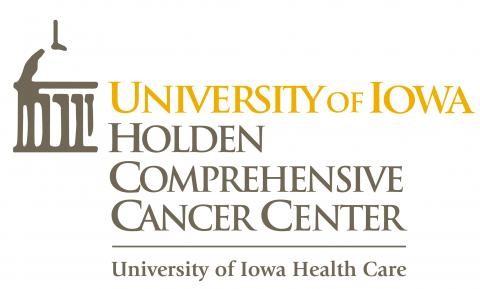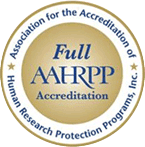Index
Seasons Greetings from HSO
Tracking HCCC Research
New Postings on HSO Website
HawkIRB Changes: Clarifying NRC Review (Section V.26)
IRB Advisor: Is "Informed Consent" an Oxymoron?
In the News
Seasons Greetings from HSO


By Kelly O’Berry
On behalf of the staff in the Human Subjects Office (HSO), I wish you Season’s Greetings and a Happy New Year! We are grateful for the work each of you does to conduct sound, ethical research and to protect the rights, safety and welfare of human subjects. The end of the year is a good time to reflect.
New HSO Staff
This has been an eventful year for the HSO with a number of staff departures and retirements. We also received approval from the institution to hire three new senior level staff – two in the Application Review Team and one in the Education & Outreach Team. So, then the searches began. Here is an overview of the new hires to date:
- Two application pre-screeners - Gabby Chelette (IRB-01) and Julie Eisele (IRB-02)
- A Senior Application Analyst – Kela (Kay) Lewis (IRB-01)
- A External IRB Coordinator (commercial focus) – Jarrod Feld
- An Education & Outreach Specialist – Maegan Tyrrell
- A Full Board Coordinator – Svetha Swaminathan
- A Compliance Manager – Jen Bowman-Reif
We are delighted with this excellent group of new HSO staff members. They are very quickly learning their role in the IRB review process and diving in to conduct the review. Several of our current staff are also transitioning to senior level positions or transferring to new roles. These changes require a significant amount of time for onboarding and training.
The posting recently closed for a brand-new Project Specialist position. We anticipate filling this position in January 2020. We are currently searching for a new PRS Administrator (Sr. Compliance Specialist) to oversee ClinicalTrials.gov. Several other searches are planned. We are looking forward to the day when the HSO is fully staffed, which should be sometime in the near future!
Revised Federal Regulations for Human Subjects Research
The biggest news this year was the revised Common Rule regulations that took effect in January 2019. The previous regulations had been in place since the early 80’s, so this was the first time they were changed in a very long time. And the process to change the regulations was lengthy and involved. It’s also remarkable that a total of 18 federal agencies agreed to follow these regulations for the research they conduct.
During Spring 2019 semester, we gave a large number of presentations to educate the research community about the revised regulations. We continue to be available to meet with faculty and student groups to discuss the changes that apply to your area of research. Social/behavioral researchers might be especially interested in learning about the revised categories of research that qualify for Exempt status. Please contact the IRB Education & Outreach Program if you would like to schedule a group presentation.
In January 2020, the final element of the revised Common Rule will take effect requiring the use of a single IRB model for all federally funded research. Stay tuned for more information about this change after the first of the year.
AAHRPP Accreditation Process
Also in early 2019, we initiated the reaccreditation process with the Association for the Accreditation of Human Research Protection Programs (AAHRPP). This is an institution-wide accreditation for all of the offices and boards and committees and core facilities that make up the UI HRPP. The University of Iowa was the first academic institution to achieve AAHRPP accreditation in 2003 and this is our fourth reaccreditation process. We submitted our application in March, made some updates to our policies and procedures as part of the step 1 & 2 reviews. We just hosted the AAHRPP site visitors on December 5-6. We will receive the final report in a few weeks, but the site visitors were very complimentary of the UI HRPP and the research community. What a wonderful holiday present to receive compliments on our program from these experienced site visitors. A big thank you to all members of the research community and the UI HRPP representatives who participated in this process!
New IRB Members
This year we also added 21 new members to the four different IRBs. There are now a total of 68 members across all of our boards. New members go through an extensive training process before they are added to the IRB Membership Roster. After that they complete monthly continuing education activities and attend a specific number of IRB meetings per year.
Happy Holidays from the HSO!
In 2020, we hope you will take advantage of the educational resources we offer to the UI research community. We hope you will reach out to HSO staff if you have a question or if there is anything we can do to assist you. We will be working hard to reduce the length of time from submission to approval for all HawkIRB applications. You can contribute to that by submitting thorough, detailed applications and by responding to HawkIRB Workflow questions in a timely manner. Faculty Advisors can also help to reduce the length of the IRB review process for all applications by actively assisting student Principal Investigators with their HawkIRB forms and by closely reviewing them before submission.
We wish you all the very best with your research endeavors in the coming year. Have a peaceful and productive New Year!
Tracking Research Involving HCCC Resources and Patients
By George Weiner, MD

This research includes both therapeutic clinical trials and non-therapeutic interventional clinical trials such as those geared towards cancer prevention, early detection, monitoring or quality of life. Examples of non-therapeutic interventional trials include those exploring HPV vaccination, colorectal cancer screening, novel cancer imaging and tobacco cessation.
NCI-designated Cancer Centers must have a scientific process in place to review and prioritize therapeutic and non-therapeutic interventional trials. This review focuses on the scientific aspects of trials and is in addition to and distinct from the human subjects review conducted by the IRB. More specifically, a cancer center’s Protocol Review and Monitoring Committee (PRMC) provides scientific review that includes evaluation of the scientific robustness of the study rationale and study design. The PRMC is also expected to prioritize potentially overlapping trials and monitor trials for accrual, new safety information and ongoing scientific relevance. The PRMC and IRB reviews are coordinated and take place in parallel to minimize delays in the overall review process.
P30 grants (and NCI-designation) must be renewed every 5 years. The University of Iowa Holden Comprehensive Cancer Center will submit its P30 Cancer Center Support Grant competitive renewal in the spring of 2020. This application will include a comprehensive discussion of the operations of the PRMC and a list of all protocols and accruals for trials that have been reviewed by the PRMC.
To more accurately collect this information, Section V.22 in the HawkIRB application asks whether a study uses the resources/patients of the Holden Comprehensive Cancer Center or if it involves treatment, detection, supportive care, or prevention of cancer. Representatives from the Cancer Center and Human Subjects Office (HSO) screen all IRB protocols to be sure appropriate protocols are being reviewed by the PRMC.
HCCC and the HSO continue to strive to make this process as effective and efficient as possible and appreciate the participation of all investigators doing interventional research exploring cancer therapy, prevention, early detection, monitoring or quality of life.
New Postings on HSO Website:IRB Rosters and the UI and VA Investigator’s Guides
By Kelly O’Berry
As of November, 2019, IRB membership rosters are now available on the Human Subjects Office (HSO) website. We also changed the way the UI and VA Investigator’s Guides are posted on the website. Read on to make sure you know how to access all of these materials.IRB Membership Rosters
Researchers are typically required to include the current IRB membership roster in the Regulatory Binder for each full board meeting that reviewed a form for a specific research project. Keep in mind that rosters are revised periodically throughout the year as new members are added or removed from the board. It is important to check for an updated roster after each time a study is reviewed at a full board meeting or according to guidelines from the sponsor.
You can now click a link at the bottom of the updated page about the Federalwide Assurance (FWA) to access the rosters for each IRB for the current year. If you need a roster from a previous year, email us at irb@uiowa.edu.
See below for instructions for accessing the IRB Membership Rosters
UI and VA Investigator’s Guides
We have changed the way the UI and VA Investigator’s Guides are posted on the HSO website. The links to the UI Investigator’s Guide are available in the yellow menu bar on the left side of the HSO website. The UI Guide includes the Standard Operating Procedures for the IRB and provides guidance for UI researchers. This document was recently updated as outlined in the table on that page of the website.
The VA Investigator’s Guide is available on the on the “Research at the VAHCS” page of the HSO website. This Guide contains a description of the standard operating procedures and policies for IRB-03.
See below for instructions for accessing the UI and VA Investigator Guides.
Accessing These Documents
The IRB Membership Rosters and the UI and VA Investigator’s Guides are posted in a Sharepoint folder, available to anyone with an active UI HawkID and password. Follow these instructions to access these documents from the Human Subjects Office website:
- Go to the Human Subjects Office website.
- Scroll down to appropriate section in the yellow menu bar.
- Log in with your UI HawkID@uiowa.edu and your HawkID password.
Note #1: Be sure to use your University of Iowa ID, not your UIHC ID and password.
Note #2: Your username must include “@uiowa.edu” after your HawkID.
We hope this is helpful to have 24/7 access to the IRB Membership Rosters. And we hope you will utilize the UI and VA Investigator’s Guides to be informed about IRB policies and procedures.
HawkIRB Changes: Clarifying NRC Review (Section V.26)
By Joanie Neyens
As part of the University of Iowa’s Human Research Protection Program (HRPP), the Nursing Research and Evidence-Based Practice Committee (NRC) must review and approve research that is done within the Department of Nursing Services and Patient Care. Specifically, the NRC reviews research that involves (1) the use of resources including participation of Department of Nursing Services and Patient Care staff in research activities or as subjects, (2) procedures not normally part of the regular nursing or patient care activities of the unit or clinic, and (3) research that evaluates nursing practice.Recently, a change was made to Section V.26 of the HawkIRB application to clarify that the NRC only needs to review research studies that involve Department of Nursing Services and Patient Care specifically “…at UI Health Care.” This change was implemented to make it clear that the NRC does not need to review and approve research involving nursing staff or nursing practices at other medical facilities outside of the UI.
IRB Advisor: Is "Informed Consent" an Oxymoron?
By Maegan Tyrrell
This article in the November issue of IRB Advisor is about a study conducted by Evan Perrault, PhD, assistant professor of health communication at Purdue University, asking subjects to consent to participate using a short form containing only the key information about the study. The results suggested that participants only skimmed through it or skipped it outright.
The recently published findings are interesting in light of revisions to the Common Rule that call for “concise” consent documents that “facilitate comprehension.” These revised regulations were implemented in January 2019 as consent documents trended toward longer forms. The results suggest that participants may be consenting to study activities they do not fully understand.
The study consisted of a 71-word consent document for an online study, testing participants’ comprehension of the information. Participants were given the choice to read the concise summary and proceed to the survey or request more information about the study. All 429 participants bypassed the extra information to proceed to the survey about sexually transmitted diseases.
Participants indicated that they liked the brief consent document, but many clearly did not comprehend the limited information or simply did not read it. The results showed one-third did not know how long the study would take, 77% did not know who the primary investigator was, and 14% did not know that their responses would be anonymous.
The authors of the study concluded: “If we want to continue referring to informed consent as informed, future research should be welcomed and supported by IRBs to seek ways to apply the newest Common Rule guidelines while increasing comprehension; otherwise, informed consent will likely always remain an oxymoron.”
The IRB Advisor article is an interview with Evan Perrault. Read the full article posted in our IRB ICON course for Researchers.
Other articles in the November issue include:
- Single IRB Common Rule Changes Arrive in January
- Focus on the differences between IRBs and HRPPs
- OHRP holds workshop on ‘pervasive’ data
- Protecting research data in the digital age
- Methods to improve the IRB/PI relationship
Current and Past Issues
IRB Advisor (a publication of Relias) is a monthly newsletter with articles about issues facing IRBs and individuals involved with human subjects research. The University of Iowa subscribes to this publication as a resource to UI faculty, staff and student researchers as well as for IRB members and Human Subjects Office staff.
Current and past issues of IRB Advisor are posted in the “IRB ICON Course for Researchers” which is accessible to anyone with a UI HawkID and password. The portal to this ICON Course is on the Education and Training page of the Human Subjects Office web site. Due to our licensing agreement, we cannot post a link directly to this publication on the Human Subjects Office website.
In the News
Pregnancy hypertension risk increased by traffic-related air pollution National Institutes of Health
The Disappearing Y Chromosome The Atlantic
The Language You Speak Influences Where Your Attention Goes Scientific American
Want to avoid the holiday blues? New report suggests skipping the sweet treats Science Daily





